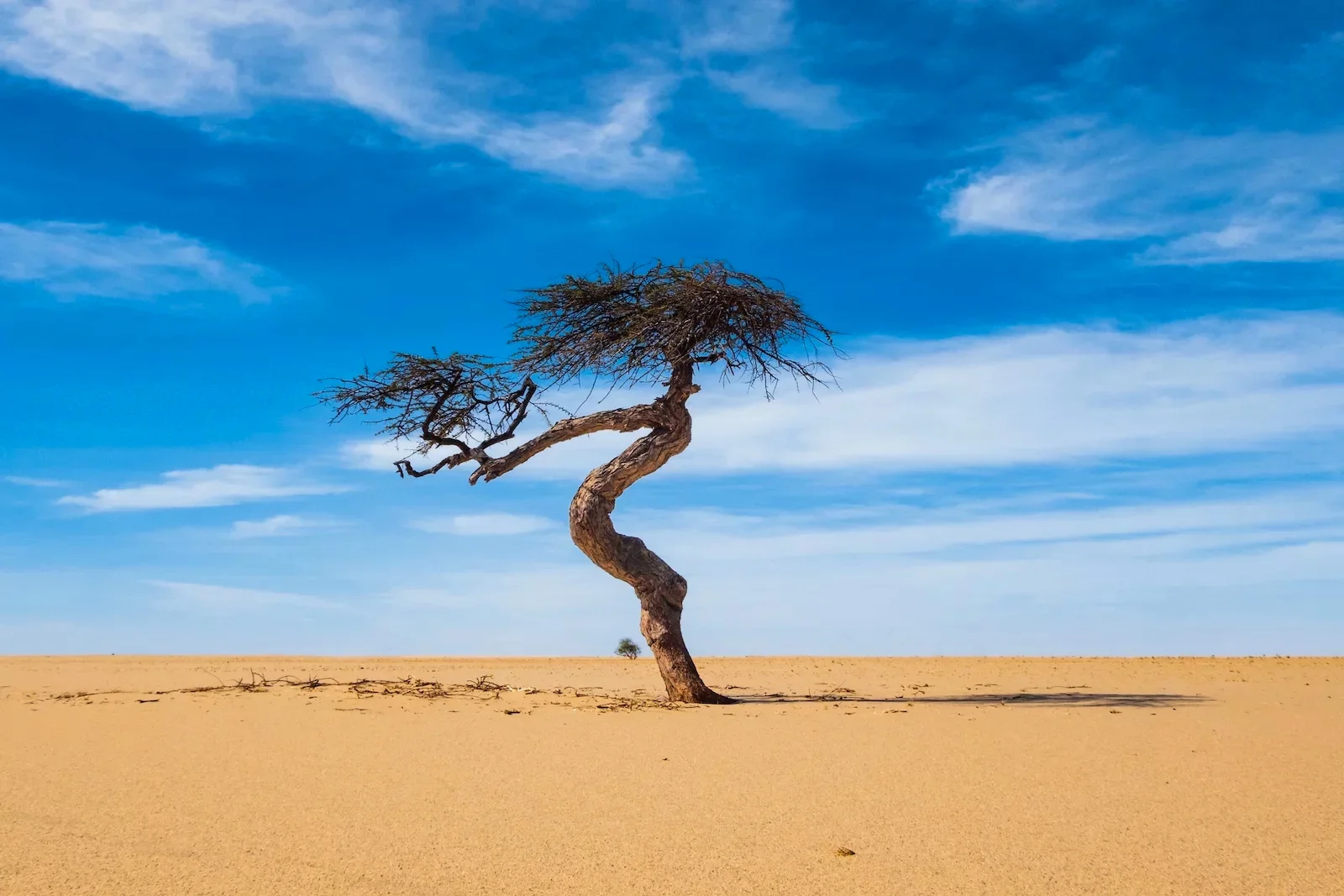
Heat, Hunger, and the Ghosts of Empire
The industrialized nations of the Global North—many of them former imperial powers—built their prosperity through centuries of colonial extraction and, later, unrestrained emissions. Today, the consequences of that history are unfolding across a warming planet, with the most severe impacts falling on those who were once colonized. From India’s drought-ravaged farmlands to forests in Africa cleared in the name of “carbon offsets,” climate justice remains deeply entangled with the legacies of empire. And despite the progressive rhetoric of climate finance and sustainable development, many of today’s “solutions” replicate the very hierarchies they claim to dismantle.
In India, communities already relegated to the margins—Adivasis, Dalits, and other castes—bear the brunt of climate disruption. This same situation is being replicated across many former European colonies in Africa, the Caribbean, and the Pacific.
The wealth of today’s richest nations is built atop the ruins of colonial plunder. Their industrialization, fueled by fossil capitalism, led to unchecked greenhouse gas emissions that destabilized global climate systems. Yet the countries now most vulnerable to ecological collapse are those that once suffered the most under colonial rule.
During the British Raj, India’s agrarian landscape was fundamentally transformed. Communal lands used for subsistence farming were converted into monocultural fields of cash crops—cotton, indigo, and tea—destined for European markets. Indian farmers were coerced into growing export commodities and forced into wage labor to meet colonial tax demands. Similar stories unfolded in French-ruled West Africa, where Indigenous farming practices were dismantled and forests were cleared for cotton plantations. The result was not just economic dislocation but environmental degradation on a vast scale.
In a recent report, the Intergovernmental Panel on Climate Change acknowledged this link, stating that contemporary climate vulnerabilities are rooted in “historical and ongoing patterns of inequity, including colonialism.” This marks a long-overdue recognition of what scholars and communities have long argued: that colonialism is not a historical footnote to the climate crisis, but its origin story.
View this post on Instagram
Tao Leigh Goffe, a scholar at the City University of New York, traces this origin back to 1492, when Columbus’s arrival in the Americas set off centuries of imperial conquest and ecological devastation. In Dark Laboratory: On Columbus, the Caribbean, and the Origins of the Climate Crisis, Goffe writes that climate breakdown is not a recent aberration but the culmination of racial capitalism and scientific racism that justified the mass exploitation of people and the environment under the guise of “civilization.” She urges us to recognize climate change as a political and historical phenomenon—not simply an environmental one—driven by centuries of global extraction, violence, and dispossession.
If the colonial past laid the groundwork for ecological collapse, the present-day architecture of climate finance threatens to reinforce it. Carbon markets, introduced under the Kyoto Protocol in 1997, were intended to price pollution. In practice, they allowed wealthy nations and corporations to continue emitting carbon so long as they paid to “offset” it elsewhere, often in the Global South.
In the Araku Valley of Andhra Pradesh, tribal communities signed away rights to carbon credits through a partnership brokered by the Naandi Foundation and foreign corporations. Villagers planted trees across 6,000 hectares of land, but the carbon credits were sold to Livelihoods Funds, a French firm whose clients include Danone and Michelin. A 2022 investigation by Rohini Krishnamurthy and Trishant Dev of the Centre for Science and Environment found that Adivasi communities did not see any tangible benefits from the deal. Their labor—and their land—were essentially commodified for Western climate compliance.
This is not an anomaly. Scholars and activists warn of a new “green colonialism,” where climate projects touted as progressive cover the continued exploitation of the Global South. Oxford University researchers have noted that offset schemes enable corporations and governments in the Global North to continue emitting high levels of greenhouse gases while utilizing Indigenous lands, often without obtaining meaningful consent. A 2022 Greenpeace UK report underscored this imbalance, urging climate reparations and financial justice for those who suffer the most but have contributed the least.
These injustices are compounded by broken promises. In 2009, wealthy nations pledged $100 billion annually in climate finance to developing countries from 2020 to 2025. Yet as of 2023, the pledge remains largely unfulfilled. Meanwhile, reforestation efforts linked to these funds have led to land grabs and violence, particularly in parts of Africa, Southeast Asia, and Latin America. Vijaya Ramachandran of the Breakthrough Institute has described this as a form of “green colonialism,” where lofty climate goals are achieved at the expense of the world’s poorest.
Ironically, nations like India and China—whose per capita emissions remain far below those of the U.S. and Canada—are often vilified in global climate negotiations. The real disparity lies in luxury-fueled emissions from the North, where fossil-fueled affluence is rarely questioned.
India’s caste system adds another layer to climate injustice, compounding historical marginalization with new environmental vulnerabilities. Adivasis, Dalits, and other caste-oppressed communities face the most severe consequences of climate change—from recurring droughts to deadly heatwaves and rising sea levels—without access to resources or political representation.
A 2022 study by the National Campaign on Dalit Human Rights (NCDHR) in Maharashtra’s Kallam and Osmanabad blocks surveyed over 2,200 people. It found 96% of respondents faced extreme vulnerability to drought; 75% earned less than $60 per month; and 58% lacked homestead land. Most were excluded from state relief programs. Public water sources were insufficient, leading to widespread illness and malnutrition. The findings point to a brutal reality: climate change amplifies systemic caste discrimination, worsening poverty, while government programs fail to offer even basic protections.
Fisherfolk from the Koli caste in Maharashtra face similar exclusion. Sea-level rise, coastal erosion, and cyclones, such as Nisarga in 2020 and Tauktae in 2021, have devastated their communities. Their customary rights to the coastal commons are often ignored in urban climate strategies, including Mumbai’s Climate Action Plan. Despite court victories—such as a National Green Tribunal case in Uran that exposed illegal development—Koli voices are still marginalized in policy discourse. Their demands include not only environmental justice but broader citizenship rights encompassing healthcare, education, and disaster relief.
Journalist Bhumika Saraswati, recipient of the UN-Laadli Media Award and the Human Rights Press Award, documents these layered injustices in her project Unequal Heat (@heat.southasia). Through photography and field reporting, she explores how rising temperatures disproportionately affect Dalit and Adivasi women, those already made vulnerable by caste, gender, and geography. For Saraswati, heat is more than a weather condition—it’s a metaphor for generational rage.
Her reporting uncovers stories of sexual violence, displacement, and resistance, particularly in regions like Chhattisgarh, where women organize to defend their land from deforestation and mining. Their struggle, captured through her lens, serves as a powerful reminder that climate resistance is also a form of social resistance.
To confront climate change is to confront the legacies of empire, the inequalities of global capitalism, and the hierarchies of caste and race. It means recognizing that the crisis did not begin with plastic straws or rising sea levels, but with conquest, exploitation, and systems built to privilege some at the expense of others. Climate finance, when detached from historical accountability and grassroots leadership, risks becoming yet another tool of control.
True climate justice must begin with listening to the Adivasi farmer, the Koli fisherwoman, the Dalit activist. It must include reparations, land rights, and a radical rethinking of what development means. Otherwise, we’re not solving the climate crisis—we’re simply exporting it, albeit in greener clothes.
